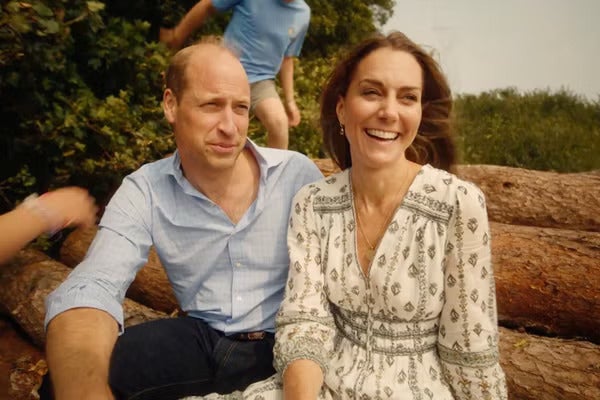Kate Middleton is cancer free after chemotherapy treatment – what will her recovery look like?
The Princess of Wales may still have a long road to recovery now she is cancer-free
Your support helps us to tell the story
From reproductive rights to climate change to Big Tech, The Independent is on the ground when the story is developing. Whether it's investigating the financials of Elon Musk's pro-Trump PAC or producing our latest documentary, 'The A Word', which shines a light on the American women fighting for reproductive rights, we know how important it is to parse out the facts from the messaging.
At such a critical moment in US history, we need reporters on the ground. Your donation allows us to keep sending journalists to speak to both sides of the story.
The Independent is trusted by Americans across the entire political spectrum. And unlike many other quality news outlets, we choose not to lock Americans out of our reporting and analysis with paywalls. We believe quality journalism should be available to everyone, paid for by those who can afford it.
Your support makes all the difference.On Monday Kate Middleton confirmed she was finally cancer-free three months after the shock news broke that she was receiving “preventative chemotherapy“ after doctors found cancer cells while she was having an abdominal surgery procedure.
Following the announcement in June, the Princess largely withdrew from public appearances to focus on her treatment.
Now she is cancer-free she will likely go through the recovery process which awaits many cancer patients after treatment, which can be a long road.

What does it mean to be cancer-free?
When you are in remission or cancer free it means there is no detectable sign of cancer in your body.
However, there is a chance cancer may sometimes come back after a drug treatment or chemotherapy.
There are three primary treatments for most cancers, chemotherapy, radiotherapy and immunotherapy.
Chemotherapy aims to kill cancer cells by attacking the cells that are in the process of doubling and dividing. Chemotherapy helps catch as many cells dividing as possible/ However, it is unlikely it will kill every single cancer cell possible, so if the remaining cells aren’t killed off by the immune system or die on their own they could grow back.
Similarly with radiotherapy, which makes small breaks in the DNA inside of cancer cells, if all cancer cells are not killed they can grow back.
Meanwhile, immunotherapy uses our immune system to fight cancer by ‘targeting’ the differences in cancer cells that help them to grow and survive. Some immunotherapies or targeted cancer drugs may get rid of a cancer completely. Others may shrink the cancer or control it for some months or years.
Although the cancer may seem to be gone after immunotherapy there may be a small group of cells that remain in the body which can start to grow again.

Now Kate has the ‘all clear’, what will her recovery look like?
Many chemotherapy symptoms are temporary, but it can take the body months, for some years, to recover from changes. Most people may need around six to 12 months to fully recover.
Many people will initially feel more fatigued, which can also last more than a year after treatment finishes.
During treatment, a person may be less active than usual and could lose some muscle strength. So doing a small amount of physical activity regularly can help. However, experts warn doing too much too soon can make a person feel more tired. Eating healthily can also help with recovery.
After cancer treatment ends patients will also usually have check-ups and scans arranged.
Macmillan reminds us patients may need to recover from the emotional impacts, perhaps feeling anxious or uncertain about the future.
What cancer did Kate have?
The palace has never confirmed what type of cancer the Princess of Wales was diagnosed with. It did confirm the cancer was found incidentally while she was having major abdominal surgery for another condition.

What was the “preventative chemotherapy” that the Princess had?
Preventative chemotherapy isn’t an official NHS term for a type of treatment and no further information has been given on Kate’s cancer, or the type of treatment.
There are current treatments that exist called “chemoprevention” which lower the risk of getting cancer, or of it returning in healthy people.
For example, it is currently used for people who have not developed breast cancer but are at increased risk of getting it due to their family history.
In 2021-22 more than 320,000 people received treatment for cancer on the NHS including chemotherapy and radiotherapy.
According to specialists at The Royal Marsden, a cancer hospital in London, chemotherapy can also be called “adjuvant therapy” and is sometimes used to help destroy cancer cells that may remain after surgery or radiotherapy.

Join our commenting forum
Join thought-provoking conversations, follow other Independent readers and see their replies
Comments